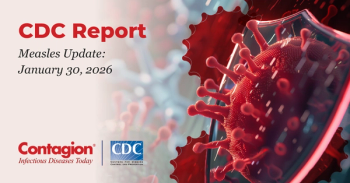
Comparing COVID-19 Vaccination, Boosters for Patients With and Without Immune Dysfunction
Investigators looked at full vaccination and booster dose observational data to offer some insights on protection and breakthrough infections.
One of the ongoing challenges has been full vaccination and booster efficacy among both those with and without immune dysfunction, especially since the Delta and Omicron variants have become the predominant strains. With regards to the immunocompromised, it has been reported that they as a group have a
A team of investigators led by Jing Sun, MD, PhD, assistant scientist, Johns Hopkins Bloomberg School of Public Health, examined real-world evidence on full COVID-19 vaccine and booster effectiveness in these 2 populations.
Based upon their findings, they wrote, COVID-19 Booster Vaccine Effectiveness in People With and Without Immune Dysfunction, a presentation that was delivered virtually at the 2022
The investigators included patient data from the US National COVID Cohort Collaborative (N3C) looking at over 60 clinical centers across the US. Within these centers, 784,555 had full COVID-19 vaccination, and 174,042 were given a booster dose. These patients complete their vaccination series between 12/10/2020-12/17/2021, and were followed up to 1/14/2022.
Each month during the study period, the investigators created comparable cohorts of patients with boosters propensity-score matched to those without boosters by age, sex, race/ethnicity, comorbidities, geographic region, prior COVID-19 infection, and calendar month of full vaccination, the investigators explained. In addition, booster efficacy was evaluated among patients with and without immunosuppressed / compromised conditions, which included patients with HIV infection, solid organ or bone marrow transplant, autoimmune diseases, and cancer.
“We showed the booster vaccine is highly effective in preventing breakthrough infections and severe COVID-19 cases during the study period,” Sun stated. “And we also showed the effectiveness in both patients with and without immune dysfunction.”
Sun points out that their data is largely represented before the Omicron variant period. Although, she says they did include a short period of time after the variant emerged. “So, the data should still be interpreted with a degree of caution,” Sun said.
According to the investigators, there was a total of 48,893 breakthrough infection cases and weekly breakthrough infections increased after Delta and Omicron strains became the predominant strains.
“Booster efficacy ranged from 52% (booster receipt 9 months after full vaccination) to 77% (receipt 7 months after full vaccination) in people without ISC (immunosuppressed / compromised conditions),” the investigators wrote. “Vaccine efficacy was lower, ranging from 30%-60%, in ISC patients. Compared to fully vaccinated patients without booster receipt, patients with booster had an 84% (OR: 0.16, 95% CI: 0.11, 0.24) reduced risk of COVID-19 related death, independent of demographics, geographic region, comorbidities, ISC, prior COVID-19 infection, and time of full vaccination.”
Sun points out there is a shift in expectations that the current vaccines and boosters will prevent disease altogether and should be viewed as a way to prevent severe disease and potentially hospitalization.
Contagion spoke to Sun who offered some insights about her study as well as perspective on full vaccination and booster efficacy amongst those with or without immune dysfunction.
Newsletter
Stay ahead of emerging infectious disease threats with expert insights and breaking research. Subscribe now to get updates delivered straight to your inbox.
































































































































